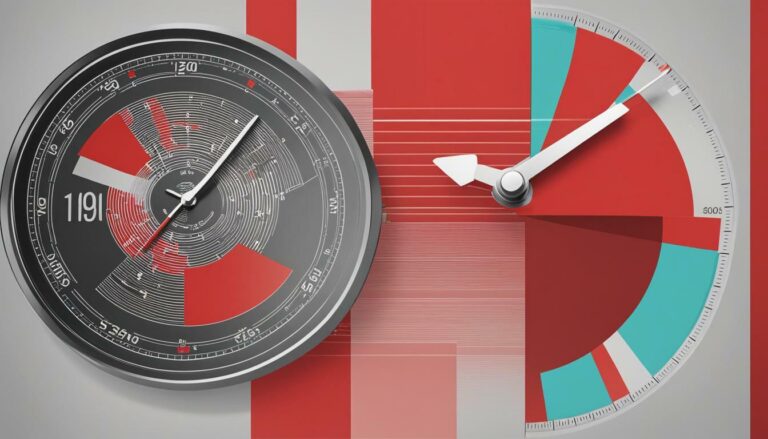Understanding Credit Score Considerations for Refinancing

When considering refinancing, it is crucial to understand the role your credit score plays in the decision-making process. Your credit score is a numerical representation of your creditworthiness and is often used by lenders to assess your ability to repay a loan. It is a key factor that can impact your eligibility for refinancing and the terms and conditions you may be offered.
Refinancing can have both positive and negative effects on your credit score. On one hand, the credit checks and multiple loan applications associated with refinancing can temporarily lower your score. However, the potential savings from refinancing usually outweigh these temporary negative effects. As you pay off your new loan, your credit score should improve.
When refinancing a mortgage, it is important to continue making payments on your old loan to avoid late payment penalties. This demonstrates your financial responsibility and helps maintain a good credit history. Similarly, if you are refinancing a car loan or personal loan, consider the potential impact on your credit score and make sure the benefits outweigh any potential drawbacks.
Avoid refinancing too often or applying for too much credit related to your mortgage, as this can negatively affect your credit score. Lenders may view frequent refinancing or excessive credit applications as a sign of financial instability. It is also important to be mindful of the age of your debt. Older debt with a steady payment history generally has a positive impact on your credit score when refinancing.
When shopping for lenders and considering multiple options, be strategic in your approach to minimize the impact on your credit score. Each credit inquiry can slightly lower your score, so limit the number of inquiries you make during the refinancing process.
🚨 TUIC Errors + Low Credit Score?
CreditScoreIQ helps you build credit faster by reporting utility bills to all 3 bureaus—while you dispute errors.
Start Building Credit Today →Lastly, focus on the FICO Score versions used in mortgage lending when refinancing your loan. These are the scores most commonly used by lenders and understanding them can provide valuable insights into your creditworthiness.
Key Takeaways:
- Your credit score plays a crucial role in the refinancing decision-making process.
- Refinancing can temporarily lower your credit score, but the potential savings usually outweigh the negative effects.
- Make payments on your old loan during the refinancing process to avoid late payment penalties.
- Be cautious of refinancing too often or applying for excessive credit related to your mortgage.
- The age of your debt and its payment history can impact your credit score when refinancing.
The Impact of Credit Score on Refinancing
Your credit score plays a significant role in determining your eligibility for refinancing and the terms and conditions you may be offered by lenders. Lenders use your credit score as a measure of your creditworthiness and ability to repay a loan. A higher credit score generally indicates a lower risk to lenders, making you more likely to qualify for refinancing and secure favorable terms.
When considering refinancing, it’s important to understand how your credit score can affect the process. A low credit score can make it difficult to qualify for refinancing, or result in higher interest rates and fees. On the other hand, a high credit score can open up opportunities for better terms and potential savings.
The specific credit score requirements for refinancing can vary depending on the type of loan and lender. Generally, a credit score of 620 or above is considered good for refinancing a mortgage, while higher scores may be required for more favorable rates. For other types of loans, such as car loans or personal loans, lenders may have different credit score thresholds.
It’s important to note that while refinancing can temporarily lower your credit score due to credit checks and multiple loan applications, the potential savings from refinancing usually outweigh the negative effects. As you pay off the new loan, your credit score should improve. Additionally, closing an account can lower your credit score, so it’s important to consider the long-term impact before refinancing.
Your credit score can impact your ability to refinance a loan. A high credit score increases your chances of qualifying for refinancing and securing better terms, while a low credit score may result in higher interest rates and fees. It’s crucial to understand the specific credit score requirements for refinancing, as they can vary depending on the loan type and lender.
Table: Credit Score Requirements for Refinancing
| Loan Type | Minimum Credit Score Requirement |
|---|---|
| Mortgage | 620 or above |
| Car Loan | Varies by lender |
| Personal Loan | Varies by lender |
Understanding credit score considerations for refinancing is essential when deciding whether or not to refinance a loan. By improving your credit score, managing existing loans, and strategically shopping for lenders, you can increase your chances of successfully refinancing and securing favorable terms. However, it’s important to avoid applying for too much credit or refinancing too frequently, as these actions can negatively impact your credit score.

In conclusion, your credit score is a key factor in the refinancing process. It can determine your eligibility for refinancing and the terms and conditions you may be offered by lenders. To make informed decisions about refinancing, it’s important to understand the impact of your credit score and take steps to improve it if necessary. By doing so, you can increase your chances of successfully refinancing and potentially save money in the long run.
Improving Your Credit Score for Refinancing
If your credit score is not currently in the optimal range for refinancing, there are steps you can take to improve it and enhance your refinancing prospects. Here are some strategies to consider:
- Pay your bills on time: Consistently paying your bills by their due dates is one of the most effective ways to improve your credit score. Late payments can have a negative impact on your credit, so make sure to prioritize timely payments.
- Reduce your credit utilization: Aim to keep your credit card balances low and avoid maxing out your credit limits. High credit utilization can signal potential risk to lenders, so it’s important to manage your credit responsibly.
- Address any errors on your credit report: Regularly review your credit report for any inaccuracies or errors that may be negatively impacting your score. If you find any discrepancies, dispute them with the credit bureaus to have them corrected.
- Avoid opening new credit accounts: While it may be tempting to open new credit accounts to improve your credit mix, doing so can actually lower your score in the short term. Focus on managing your existing accounts before considering new ones.
Implementing these strategies can help you raise your credit score over time, making you a more attractive candidate for refinancing. Keep in mind that improving your credit score is a gradual process, so it’s important to be patient and consistent in your efforts.

| Credit Score Range | Rating |
|---|---|
| 800-850 | Excellent |
| 740-799 | Very Good |
| 670-739 | Good |
| 580-669 | Fair |
| 300-579 | Poor |
Improving your credit score is essential for securing favorable refinancing terms and saving money in the long run. By taking proactive steps to enhance your creditworthiness, you can increase your chances of obtaining a lower interest rate and reducing your monthly payments. Remember, every little improvement can make a significant difference, so it’s never too late to start working on your credit score.
Managing Existing Loans During the Refinancing Process
When refinancing, it is essential to maintain a good payment history on your existing loans to demonstrate financial responsibility to lenders. This is because your credit score plays a significant role in determining your refinancing eligibility and interest rates. Lenders want to see that you are capable of managing your debt obligations and making payments on time. Any late or missed payments can negatively impact your credit score and make it more difficult to secure favorable refinancing terms.
One strategy to ensure a good payment history is to set up automatic payments for your existing loans. By automating your payments, you can avoid the risk of forgetting or overlooking a due date. This not only helps maintain a positive credit history but also showcases your responsible financial behavior to lenders.
Another important consideration is to avoid closing any of your existing loan accounts before or during the refinancing process. While it may be tempting to eliminate a debt, closing an account can actually lower your credit score. This is because it reduces your available credit and affects the length of your credit history, both of which are factors in determining your credit score. So, even if you plan to refinance and pay off the loan, it’s generally better to keep the account open and continue making regular, on-time payments.
| Loan Type | Outstanding Balance | Payment Status |
|---|---|---|
| Student Loan | $25,000 | Current |
| Auto Loan | $15,000 | Current |
| Credit Card | $5,000 | Current |
It is also essential to manage your credit utilization ratio, which is the amount of credit you’re using compared to your total available credit. Aim to keep your credit utilization below 30% to maintain a healthy credit score. This can be achieved by paying off your credit card balances in full or at least making more than the minimum monthly payments.
By actively managing your existing loans and demonstrating financial responsibility, you can improve your credit score and increase your chances of refinancing successfully. Remember to prioritize timely payments, avoid closing accounts, and keep your credit utilization ratio in check. These actions will not only help you in the refinancing process but also contribute to a healthier financial future.

While often overlooked, refinancing car loans or personal loans can provide financial advantages and should be carefully considered with respect to your credit score. Just like refinancing a mortgage, refinancing these types of loans can help lower your monthly payments, reduce interest rates, and potentially save you money in the long run. However, it’s important to understand how the process can impact your credit score and what factors to consider before making a decision.
When refinancing a car loan, your credit score plays a crucial role in determining the interest rate you will qualify for. Lenders typically look for a good credit score, preferably above 700, to offer the most favorable terms. If your credit score has improved since you first obtained the car loan, refinancing can provide an opportunity to secure a lower interest rate and save money over the life of the loan. However, keep in mind that the refinancing process may result in a temporary dip in your credit score due to inquiries and new loan applications.
Refinancing a personal loan follows a similar process. By refinancing a personal loan, you may be able to secure a lower interest rate or extend the repayment term, reducing your monthly payments. However, it’s important to evaluate the impact on your credit score. When you apply for a new loan, lenders will perform a credit check, which can temporarily lower your score. Additionally, closing the existing loan account may also have a slight negative impact on your credit score. However, as you make timely payments on the refinanced loan, your credit score should gradually improve.
| Refinancing Car Loan | Refinancing Personal Loan |
|---|---|
| Consider your current credit score | Evaluate the potential impact on your credit score |
| Research lenders and compare interest rates | Calculate the potential savings and monthly payments |
| Gather necessary documents such as proof of income and vehicle information | Apply for the loan and complete the refinancing process |
Before refinancing either a car loan or a personal loan, it’s essential to carefully evaluate your financial situation and credit score. Consider the potential savings and compare offers from different lenders. Additionally, ensure that refinancing aligns with your long-term financial goals. By making an informed decision, you can take advantage of the benefits of refinancing while minimizing any negative impact on your credit score.

- Check your credit score and work on improving it if necessary before applying for refinancing.
- Shop around and compare offers from multiple lenders to find the best interest rate and terms.
- Consider the impact on your credit score and weigh it against the potential savings.
- Gather all necessary documents and information before applying for the refinancing loan.
- Make timely payments on the refinanced loan to gradually improve your credit score.
Avoiding Negative Credit Score Impact
To protect your credit score when refinancing, it is important to avoid certain actions that could have a detrimental impact on your overall creditworthiness. While refinancing can offer many benefits, such as lower interest rates and reduced monthly payments, it’s crucial to understand how your credit score can be affected during the process.
One key consideration is to avoid applying for too much credit related to your mortgage. Each time you apply for credit, it triggers a credit inquiry, which can temporarily lower your credit score. Multiple inquiries within a short period of time can raise red flags for lenders and signal potential financial instability. Instead, strategically shop for lenders and limit credit inquiries to protect your credit score.
Another important factor to consider is the age of your debt. Older debt with a steady payment history is more favorable for your credit score than newer debt. When refinancing, it’s essential to prioritize making payments on time and not closing any existing accounts. Closing an account can lower your credit score, so it’s better to keep those accounts open while you pay off the new loan.
In addition, cash-out refinances, where you borrow more than the remaining balance on your mortgage and take the difference in cash, may not be helpful for your credit score. While it may provide immediate funds, it increases your debt and can negatively impact your creditworthiness. It’s important to carefully consider the long-term implications before opting for a cash-out refinance.
Table: Actions to Avoid for Protecting Your Credit Score
| Action | Impact on Credit Score |
|---|---|
| Applying for too much credit | Multiple credit inquiries can lower your score |
| Closing existing accounts | Can lower your credit score |
| Opting for cash-out refinances | Increases debt and negatively affects creditworthiness |
By avoiding these actions and being proactive in managing your credit, you can minimize any negative impact on your credit score when refinancing. Remember to focus on the FICO Score versions used in mortgage lending, as these are the scores most commonly used by lenders to assess your creditworthiness.

Refinancing can be a valuable financial strategy, but it’s essential to consider the potential impact on your credit score. By understanding and implementing these credit score tips for refinancing, you can make informed decisions and protect your financial well-being.
Considering the Age of Debt
Lenders consider the age of your debt as an important factor when assessing your creditworthiness for refinancing, with older debt carrying more weight than newer debt. This means that if you have a long and positive payment history on an older loan, it can positively impact your credit score and increase your chances of successfully refinancing.
When evaluating the age of your debt, lenders typically focus on the length of time you’ve had each account open. The longer you’ve had an account open and have been making regular payments, the more it demonstrates your ability to manage debt responsibly. This is especially true for loans with a steady payment history, as it shows that you have a track record of making payments on time.
To illustrate the impact of the age of debt on refinancing, consider the following example:
| Loan Type | Principal | Interest Rate | Remaining Term | Age of Debt |
|---|---|---|---|---|
| Mortgage | $200,000 | 3.5% | 20 years | 10 years |
In this example, if you have been making consistent payments on your mortgage for 10 years, it demonstrates your ability to manage debt responsibly and can positively impact your credit score when refinancing. Lenders may view you as a lower risk borrower and be more likely to offer you favorable terms on your new loan.
It’s important to note that while the age of debt is an important factor, it’s not the only factor that lenders consider when evaluating your creditworthiness for refinancing. They will also assess your credit score, income, and other financial factors to determine your eligibility for a new loan. However, understanding the impact of the age of debt can help you make informed decisions when considering refinancing options.

By considering the age of your debt and maintaining a positive payment history, you can strengthen your creditworthiness and improve your chances of successfully refinancing your loan.
Strategic Shopping and Credit Inquiries
When refinancing, it is crucial to approach the process strategically, including shopping around for the best lender and being mindful of the impact of credit inquiries on your credit score. Comparing offers from different lenders allows you to find the most competitive rates and terms that align with your financial goals. However, it’s important to remember that each time a lender pulls your credit report, it results in a hard inquiry, which can temporarily lower your credit score.
To minimize the impact of credit inquiries, it’s advisable to limit your applications to a short period, typically within 14 to 45 days. This way, multiple inquiries for the same purpose are treated as a single inquiry by credit scoring models. Additionally, consider pre-qualifying with lenders instead of applying for a formal loan. Pre-qualification typically involves a soft credit inquiry that won’t affect your credit score, allowing you to compare loan offers without any negative impact.
According to FICO, a leading credit scoring company, multiple inquiries for mortgage, auto, or student loans made within a 45-day window are treated as a single inquiry.
Remember, it’s important to be proactive and strategic when shopping for lenders. Evaluate different loan offers based on interest rates, terms, and repayment options. Consider working with a reputable mortgage broker who can help connect you with multiple lenders and negotiate on your behalf.
| Strategic Shopping Tips: |
|---|
| 1. Compare loan offers from multiple lenders. |
| 2. Limit loan applications to a short period. |
| 3. Pre-qualify with lenders for a soft credit inquiry. |
| 4. Work with a mortgage broker for access to multiple lenders. |

Conclusion
Understanding the credit score considerations for refinancing is vital in making informed decisions that can potentially save you money and improve your financial situation in the long run. When you refinance a loan, it’s important to be aware that there may be a temporary dip in your credit score due to credit checks and multiple loan applications. However, the savings you can achieve from refinancing usually outweigh the negative effects on your credit score.
It’s essential to keep in mind that closing an account can lower your credit score, but as you make timely payments on your new loan, your score should gradually improve. Additionally, if you’re refinancing a mortgage, it’s crucial to continue making payments on your old loan to avoid late payment penalties that could negatively impact your credit score.
Refinancing other types of loans, such as car loans or personal loans, can also be beneficial, but it’s important to consider the potential impact on your credit score. Avoid refinancing too often or applying for too much credit related to your mortgage, as these actions can have a detrimental effect on your credit score.
It’s worth noting that older debt with a steady payment history is generally better for your credit score than newer debt. If you’re considering a cash-out refinance, keep in mind that this may not be helpful for your credit score. Additionally, when refinancing, it’s crucial to strategically shop for lenders and limit credit inquiries to minimize the impact on your score. Focus on the FICO Score versions used in mortgage lending, as these scores are most commonly utilized by lenders.
FAQ
What is the impact of credit score on refinancing?
The credit score can affect your ability to refinance a loan and the terms you may be eligible for. Lenders typically have specific credit score requirements for refinancing.
How can I improve my credit score for refinancing?
To improve your credit score for refinancing, you can focus on factors like making timely payments, reducing your debt-to-income ratio, and addressing any errors on your credit report.
What should I consider when managing existing loans during the refinancing process?
When refinancing, it’s important to make timely payments on your existing loans to avoid late payment penalties and maintain a good credit score.
Can I refinance other types of loans like car loans or personal loans?
Yes, it is possible to refinance other types of loans like car loans or personal loans. However, you should consider the impact on your credit score and weigh the potential benefits.
How can I avoid negative credit score impact when refinancing?
To avoid negative credit score impact when refinancing, it’s important to avoid applying for too much credit or refinancing too frequently. Strategic shopping for lenders can also help minimize the impact.
Does the age of debt matter when refinancing?
Yes, the age of your debt can play a role in your credit score when refinancing. Older debt with a steady payment history is generally better for your credit score compared to newer debt.
What should I consider when strategically shopping and minimizing credit inquiries?
To limit the impact on your credit score, it’s important to strategically shop for lenders and minimize credit inquiries during the refinancing process. Be mindful of how each inquiry can affect your score.
Ready to Improve Your Credit?
Disputing TUIC errors is step one. Step two? Boost your score by reporting utility payments with CreditScoreIQ.
Get Started Now (Only $1 Trial) →3-bureau reporting • $1M identity insurance • Dark web monitoring






